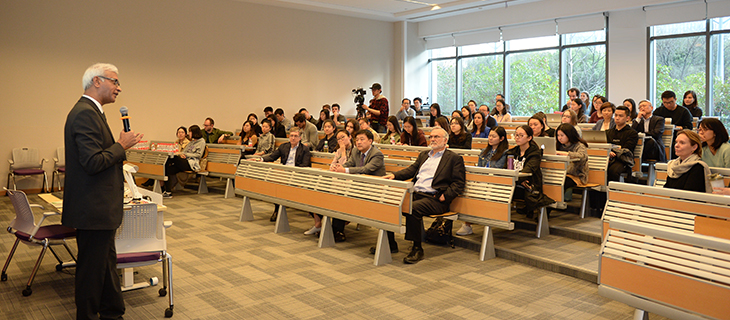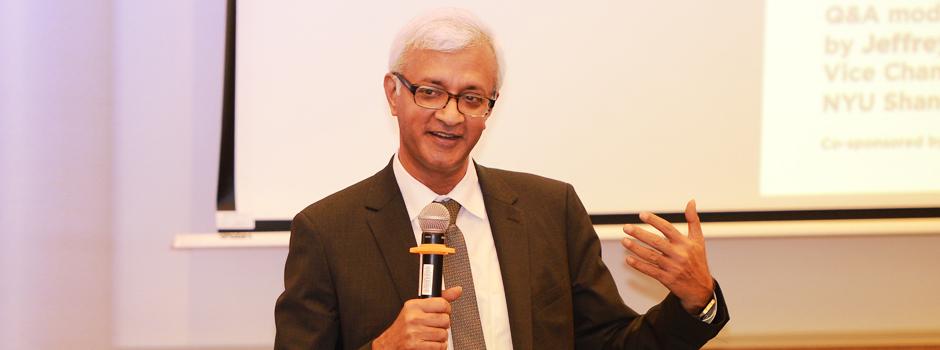On March 12, Dean of the NYU Leonard N. Stern School of Business, Rangarajan Sundaram, shared with an NYU Shanghai audience the importance of embracing technology and innovation when it comes to developing business education.
With more than 20 years of service at NYU Stern, Sundaram assumed deanship in January 2018 after serving as vice dean of MBA programs for the past two years. During that time, he launched new, specialized one-year MBA programs in technology and entrepreneurship, and in fashion and luxury. He also garnered support from executives at leading businesses such as Amazon, Jigsaw, Microsoft, IBM, PayPal and others to join Stern’s newly created Tech MBA Advisory Board.
More than 70 percent of Stern full-time MBA students specialize in a finance area, according to Sundaram, but an increasing number of graduates from the “financial powerhouse” are pursuing jobs after their MBA in non-finance fields, such as in consulting and tech firms.
“We are expanding our core curriculum to include a wide range of technology-related courses such as machine learning and algorithm analysis,” said Sundaram. “Students are also encouraged to participate in live case studies with organizations to tackle problems that big corporations are facing today.”

For applicants interested in pursuing careers at the intersection of business and technology, Sundaram pointed to the Andre Koo Tech MBA, one of a series of Stern’s innovative, specialized, one-year programs that equips students to adapt to the new market landscape.
He also warned against the risk of solely utilizing technology in business operations, pointing out that companies today tend to rely on data analysis or artificial intelligence in their decision making process. He noted that data can be limited and biased, and therefore may jeopardize the accuracy of results.
“It means that the most important aspect of our education now is not only about how to apply technology, but also how to overcome its shortcomings,” Sundaram said, citing the example of AI Now, an interdisciplinary NYU institute that examines the social implications of artificial intelligence, including its biases.
He also mentioned that Stern is collaborating with NYU Shanghai on new innovations that will be announced in the near future.


